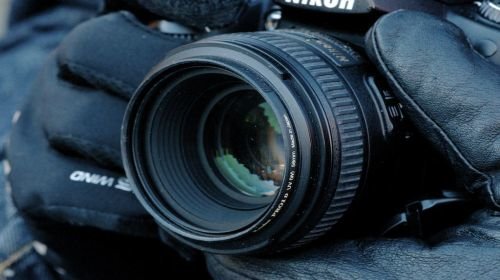Body-worn cameras are audio-visual devices worn on the lapel, chest, or glasses. There is no definitive list of the agencies using these cameras, but a recent report from the
Police Executive Research Forum (PERF) listed their use by large and small police departments across the country. In Florida, over 20 localities are already using them or are considering doing so. President Obama has asked Congress to fund 50,000 police cameras for local departments. Florida agencies should avail themselves of those funds, if funds become available.
Because body worn cameras are relatively new, there are few studies available reflecting their effectiveness, but those that exist are overwhelmingly positive. Studies in Rialto, California and Mesa, Arizona found huge reductions in the use of force overall and even larger reductions in the number of citizen complaints. For example, Rialto saw a 60% reduction in the use of force, and an 88% reduction in excessive force complaints. Mesa found that officers without cameras had three times as many complaints as officers with them.
These very promising numbers indicate that officers may not only be choosing to use force less often, but that the public may be acting on its best behavior once it realizes it is being recorded. Several police departments have reported to PERF that the cameras provide an overall calming effective on everyone involved – not just officers.
There are even more benefits of body-worn cameras for officers. More often than not, camera footage is used to exonerate officers when complaints are filed. However, for all their promise, there are two issues that must be addressed before cameras get up and rolling.
First, departments must have written, publicly available policies governing the use of cameras, especially addressing when they must be turned on.
Cameras should be on when police are on the job and interacting with the public, subject to reasonable and explicitly acknowledged exceptions, which could include interacting with a confidential informant or a victim who declines to give an interview on film. This isn’t just an
ACLU recommendation --it is the practice in many police departments around the country and even several here in Florida.
Some have proposed that cameras should be turned on and off solely at the officer’s discretion. If this is how cameras will be implemented, they will not be an oversight mechanism and instead just an evidence gathering tool.
Second, departments need to clarify that all the footage they collect through these new cameras may only be used for official law enforcement purposes and promptly deleted if an incident hasn’t been flagged due to a citizen complaint or use in prosecution. The body cameras can collect sensitive and private moments that reflect on the public, victims and witnesses, and perhaps even the officers who wear the cameras. That means we need iron-clad limitations on who has access to the footage and for what purposes. The footage recorded by these cameras should not sit indefinitely in storage where it could be subject improper access, leaks or hacking. Besides, storage of this data will not be cheap, and limited retention will save departments money.
These recommendations should not be controversial. They are emerging as best practices across the country.
Some argue that body cameras are not the answer because recent grand juries have failed to indict officers who have been videotaped abusing or even killing suspects. While the deaths of Michael Brown and Eric Gardner both resulted in no indictment, allowing the public to witness a police interaction with its own eyes in the Gardner case made a huge impact in public opinion. A recent Bloomberg News poll found that 60% of Americans disagree with the grand jury in the Gardner case but only 36% disagreed with the Brown grand jury.
To be sure, police cameras are not a panacea that will solve all police-community tensions, and they cannot ensure accountability without many other pieces of the justice system operating correctly.
But what they can do is offer an unbiased view of the facts, something that we should not leave unresolved when the solution is so simple.

